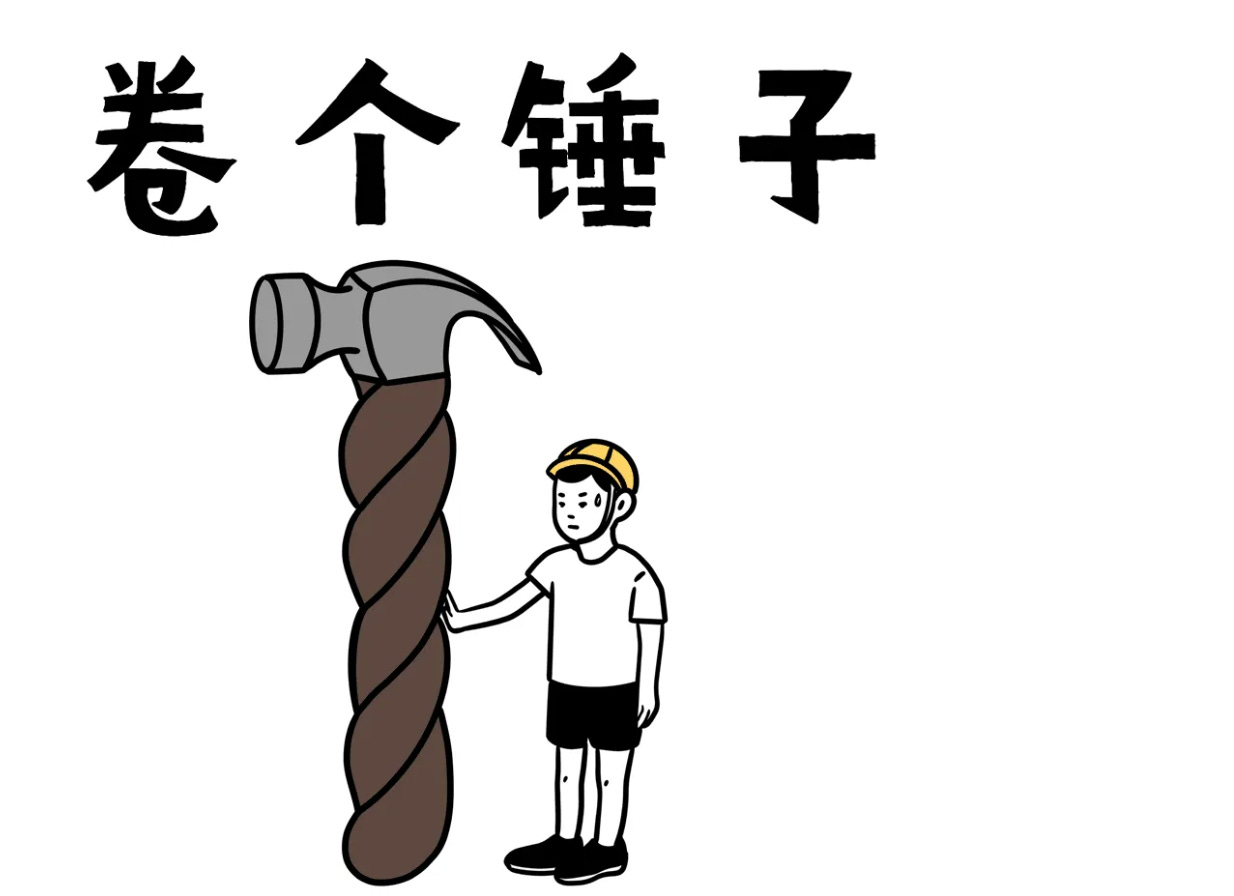Can China end the race to the bottom?
The government battles price wars and involution, plus Dalai Lama succession, China-Europe ties, U.S.-China trade and tech wars, foreigners in China, birthrates, bull market, flying cars, and more.

The cost of China’s economic miracle
Can Beijing end price wars and involution?
Involution 内卷 is a Chinese slang word that started to be used around 2018 to describe the situation where young Chinese people found themselves working ever harder—at school or as employees—for smaller and smaller rewards, as China’s economic growth was slowing down.
By 2020, the word had come to mean “irrational competition within any industry,” and Chinese companies have certainly become victims of involution, as lackluster consumer demand and cut-throat competition eat into profits. One extreme example is the practice amongst Chinese electric vehicle companies, which operate in one of the most brutally competitive markets in the world, of selling “zero-mile second hand cars”—in other words, cars sold at a discount on the pretense that they are not new.
The government seems to have decided to do something about this. After a few months of faint noises from regulators, various important Communist Party publications—including the People’s Daily and Qiushi magazine have, in the last 10 days, run articles on how to stop the “race to the bottom” (逐底竞争). Qiushi even used the word “overcapacity” (产能过剩), a term that Beijing has complained about when European and American officials use it to criticize China for dumping cheap goods on other countries.
On July 5, prominent economist Liú Yuánchūn 刘元春 joined the chorus, saying that “‘anti-involution’ had become the focus [of China’s] policy work.” But what will the government actually do about it?
A major official focus seems to be on the distortions caused to markets by local government policies and subsidies. The readouts of a July 1 meeting of the Central Financial and Economic Commission chaired by Xi Jinping focused on “deepening the construction of a unified national market” by standardizing government behavior and market supervision across the country.
What will happen next?
It’s far from certain that Beijing will do anything to make life easier for the working masses who are victims of involution. But look for the central government to force local governments to end sector subsidies and other stimuli, which is bad news for companies that depend on them.
Further reading:
Fred Gao: China's new economic priority: ending the race to the bottom
Reuters: China Communist Party magazine calls for crackdown on price wars
Buddhists in an atheist land
Dalai Lama succession
The Dalai Lama, Tibet’s spiritual leader, turned 90 on July 6. On July 2, he released a statement about the process of selecting his successor which confirmed that only the members of his office, the Gaden Phodrang Trust, are exclusively responsible for the process of finding and recognizing his reincarnation, the next Dalai Lama. Cue immediate high dudgeon from Beijing.
For context and expert analysis, see this ChinaFile Conversation (which I edited).
Related: China appoints United Front operative Chen Xiaojiang as Communist Party chief of Uyghur region
The European Union and China
Brussels-Beijing tensions simmer
“Due to lack of progress on multiple disputes, including rare earths, electric vehicles, and the war in Ukraine, the summit scheduled to mark fifty years of relations between the EU and China, to be held in Beijing at the end of July, is expected to be cut by one day,” reported Le Monde.
The most significant tension centers on electric vehicles, with the EU maintaining tariffs of up to 45% on Chinese EVs first imposed in 2024, while China retaliated with anti-dumping investigations into European pork, cognac, and dairy products. Additionally, China's April 2025 restrictions on rare earth exports have impacted European industries, while Beijing’s tacit support for the full-scale Russian invasion of Ukraine is another serious irritant.
U.S.-China trade and tech wars
Beijing and Washington’s fragile truce
The U.S. “lifted restrictions on exports to China for chip design software developers and ethane producers, a further sign of de-escalating U.S.-Sino trade tensions including concessions from Beijing over rare earths,” reported Reuters on July 3. But the fragile truce may not last long:
Today, July 8, the People’s Daily called the “London framework” agreement between China and the U.S. “hard won,” and warned that the “U.S. side’s abuse of tariffs is a typical unilateral bullying practice that causes serious impact on normal international trade order and must be resolutely opposed.”
The Trump administration is planning “to restrict shipments of AI chips from the likes of Nvidia Corp. to Malaysia and Thailand, part of an effort to crack down on suspected semiconductor smuggling into China.”
Ahead of Trump’s July 9 deadline for countries to make deals with the U.S to avoid tariffs, American officials are, per Bloomberg, “deep in talks” with major trading partners in Asia and Europe, pushing for new agreements that would include restrictions on Chinese content, or secure commitments to counter what Washington sees as China’s unfair trade practices.”
The Trump administration’s deal with Vietnam includes a clause that goods “transshipped” to the U.S. through Vietnam—i.e. of Chinese origin—”would be subject to a punitive 40% tariff, twice the 20% rate Trump said he is applying to regular imports from Vietnam.”
As early as June 28, China’s Ministry of Commerce China said it “firmly opposes any party reaching a deal at the expense of China's interests in exchange for so-called tariff reductions.”
Related: “Two Chinese artificial intelligence chip startups are seeking to raise a combined 12 billion yuan ($1.65 billion) in initial public offerings, hoping U.S. curbs on advanced chip sales to China will boost local demand for their products,” Reuters reported.


